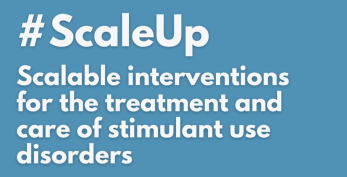

Several reports have described a growing prevalence of illicit drug use in Afghanistan, with recognition of a recent shift from traditional modes of consumption involving inhalation and oral ingestion to injecting drug use.
...د بنګ کارولو اختلال درملنې کې د کینابینوایډ درملو کارولو لپاره ډیر علاقه او شواهد شتون لری ، مګر د بریالی درملنې اړیکو لږ معاینه. دا مقاله د بنګ د کارولو اختلال (CUD) درملنې لپاره د نابیسیمولونو د تصادفی پلیسبو کنټرول...
د COVID-19 بیړنی حالت د متحده ایالاتو (متحده ایالاتو) عامه روغتیا ، طبی او عامه خوندیتوب زیربنا په بې ساری ډول ازموینه کړې. د دوی په ټولنو کې د عامې روغتیا مرکزی ټکی په توګه ، د ځایی روغتیا څانګې (LHDs) په ځانګړی توګه د وبا له پیل...
دا میاشت د نومبر په 9 ، 2022 کې ، د مخدره توکو او قانون پلی کولو نړیوالې ادارې (INL) د DDR شریکانو ناسته د کیفیت تضمین په اړه بحث وړاندې کړ او دوه پریزنټشنونه یې پکې شامل کړل:
د مور او پلار او ماشوم تر منځ نږدې اړیکې او د والدینو قبولیت کولی شی د یو ماشوم د مناسب ځان د قبلولو منځګړتوب وکړی، کوم چې د شخصیت او د احساساتی روغتیا د یو رُخ په اړه مهم متغیر دی. په دې پاڼه کې موږ د یوې څیړنې پایله وړاندې کوو...
Contingency management (CM) is a psychological treatment based on operant conditioning. It consists of providing incentives in exchange for achieving a target behaviour such as abstinence or other treatmentrelated variables (e.g. session...
Electronic nicotine delivery systems (ENDS) generate an aerosol by vaporising e-liquids that usually consist of propylene glycol (PG), vegetable glycerine (VG), and other ingredients (water, nicotine, and flavours). The...
In many countries families have rarely been involved in addressing treatment and interventions for family members with substance use disorders (SUDs). The aims of this study were to measure the influence of substance use on...
Leisure can be a context that can promote positive adolescent development, but it can also be a context that contributes to adolescents engaging in risk behaviours.
The aim of this study is to determine the extent...
Summary
War in Ukraine has inevitably led to the country's health system functioning at reduced capacity. Attacks near hospitals and active military operations force people to change their place of residence and flee from the war to...
Canada’s Low-Risk Alcohol Drinking Guidelines were originally published by CCSA in November 2011 and were the result of the work of alcohol research experts in Canada. Since then, substantial new research on the association between alcohol...
د مخدره توکو په اړه د اروپا ویب سروې د مارچ او می په 2021 کې د هغو خلکو څخه معلومات راټول کړل چې مخدره توکی کاروی ، 18 کلن یا ډیر عمر لری ، او په 21 EU او 9 غیر EU هیوادونو کې ژوند کوی پشمول لبنان. پدې موده کې ، په ډیری اروپایی او ګاونډیو...
In somatic health care settings, interdisciplinary collaborations (where various disciplines work coordinated and interdependently toward shared goals) are considered to yield higher team effectiveness than multidisciplinary...
Aftercare programs for people with substance use disorders (PWSUD) are frequently challenged with a number of overlapping obstacles, including uncertain policy consequences and a lack of resources. Despite demographic variety...
In the United States, access to buprenorphine remains low and disparities regarding who receives treatment have emerged. Federal laws have regulated buprenorphine delivery, ultimately limiting its implementation more broadly...
Beginning in the 1990s, non-medical use of prescription opioids (POs) became a major public health crisis. In response to rising rates of opioid dependence and fatal poisonings, measures were instituted to decrease the...
INTRODUCTION:
The European Prevention Curriculum (EUPC) and The Universal Treatment Curriculum (UTC) are paradigms of the efforts to achieve an international standardised training for drug demand reduction. Both curricula are based on...
BACKGROUND:
During the last ten years, Georgia made several important accomplishments in responding to the country’s drug problem. Specifically, in 2011, an interagency national drug coordinating body was established within the Ministry...
BACKGROUND:
The Universal Treatment Curriculum (UTC) is offered to the academic community to integrate substance use-specific knowledge, skills, and evidence-based practices into the continuing professional development of current and...
Share the Knowledge: ISSUP members can post in the Knowledge Share – Sign in or become a member